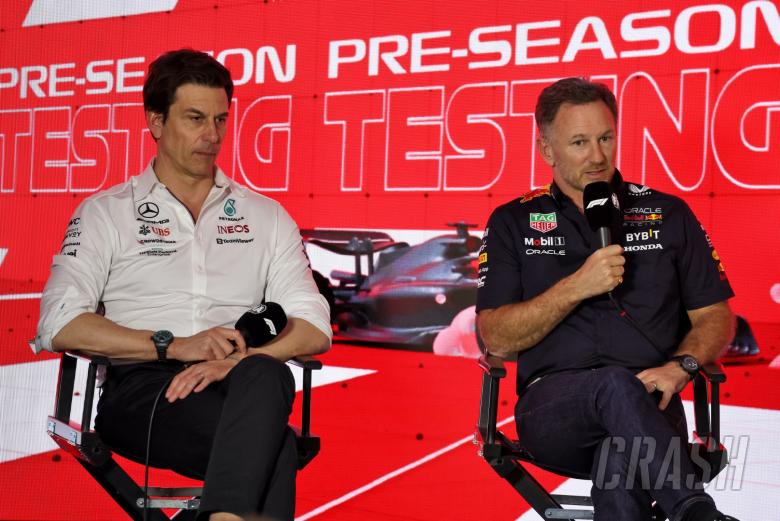Christian Horner’s advice for Toto Wolff amid Mercedes' barren run: ‘As a leader you have to…’


Christian Horner has offered arch rival Toto Wolff some advice amid Mercedes’ barren run since the new technical regulations were introduced at the start of F1 2022.
Since their titanic head-to-head for the 2021 world championships, Mercedes and Red Bull have had contrasting fortunes.
Mercedes have won just one race since the start of 2022, while in the same period Red Bull have won 38.
Red Bull endured a similar barren run themselves - between 2014 and 2020 - after four consecutive triumphs with Sebastian Vettel.
Red Bull often languished well behind Mercedes, who remained unbeaten in both championships until 2021.
“It’s a massive challenge,” Horner said on the Sky F1 podcast. “He came into the sport on the back of a winning team and enjoyed a huge period of success, serial success for seven or eight years and then suddenly, it’s a big adjustment to not be going to grands prix…and I think Mercedes have won one race in the last two seasons.
“And that will hurt and people start questioning things in the organisation, heads drop and as a leader, you have to motivate them, you have to pick them up. It’s a totally different challenge, being at the top of the field striving to get back there. I think that it’s making sure that people believe in themselves and trying to instil confidence.”
Even though Red Bull weren’t able to challenge Mercedes regularly during their uncompetitive seasons, 2015 was the only year they went winless, often coming out on top in Monaco or Mexico where their engine disadvantage didn't matter as much.
“And it’s inevitable that when you’ve been winning for a long period of time that, when suddenly you’re not winning, then that’s when fingers start getting pointed and the team gets truly challenged during that period,” he added. “And that’s where I’m particularly proud of Red Bull.
“During the period that we weren’t able to be in a winning position, which was largely out of our control, we were still winning races in every single year, two or three races. Bar 2015, we won a minimum of two or three races every year. At the places that we could do so, where the engine disadvantage was nullified.”



